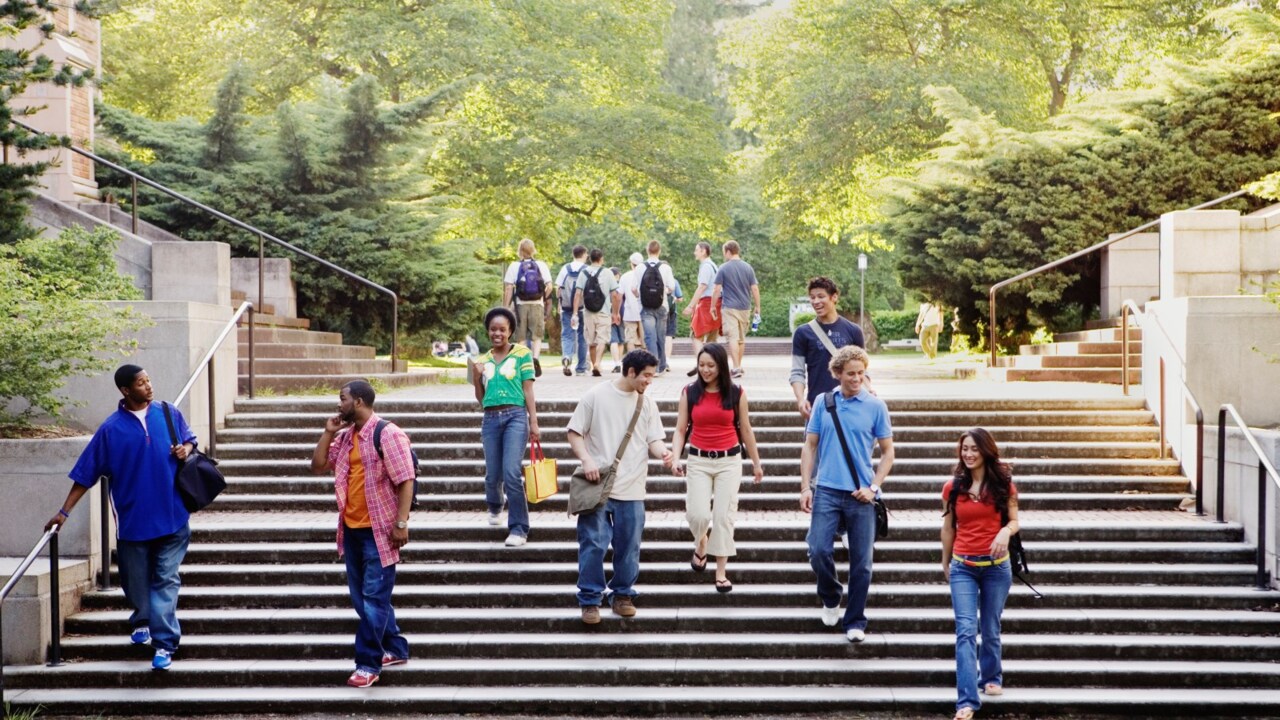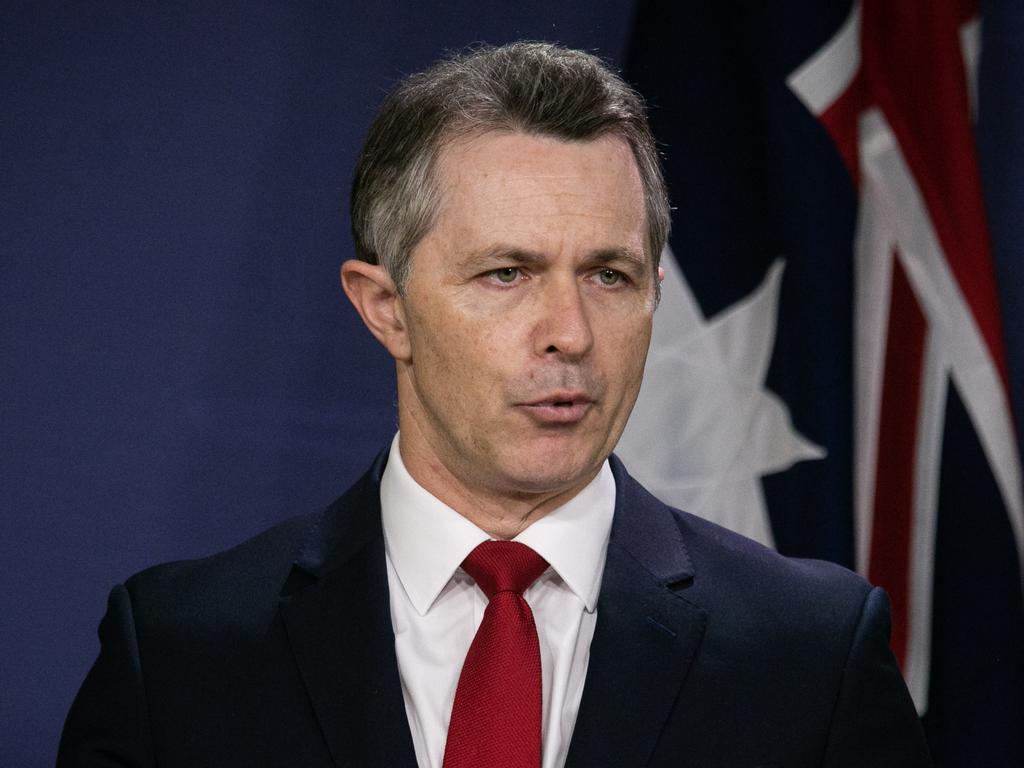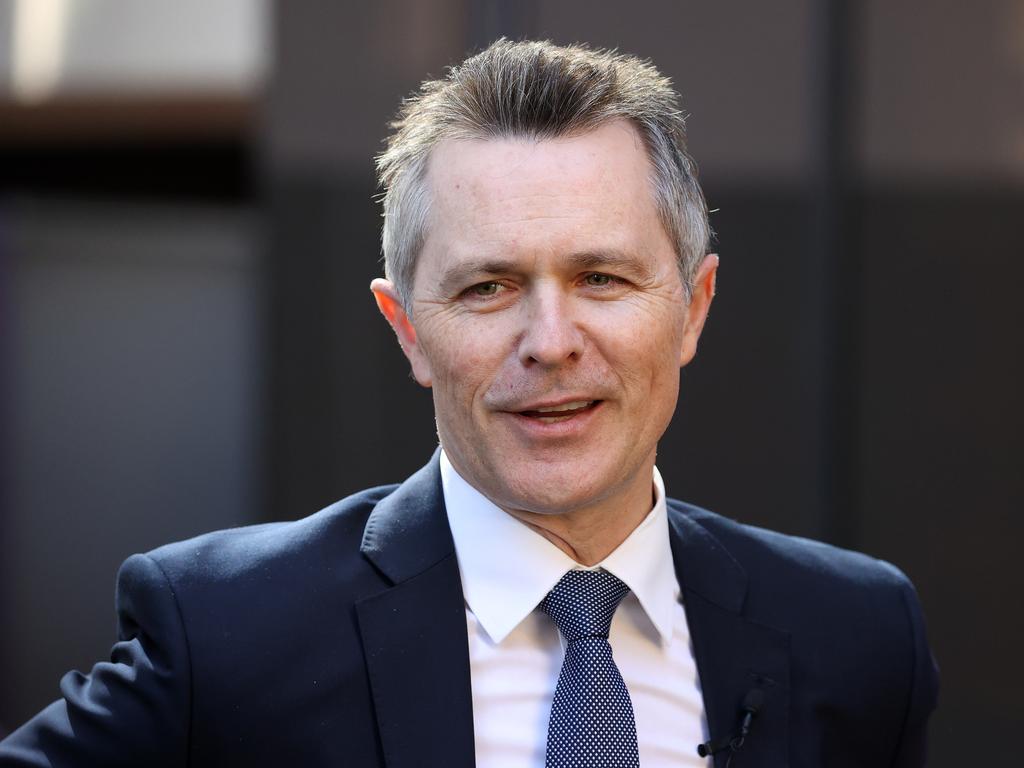Universities Accord: Labor’s Gonski-style student revolution
Free degrees for nurses and teachers, a tax on foreign students and priority places for disadvantaged Australians are flagged in Labor’s once-in-a-generation shakeup.

Free degrees for nurses and teachers, a tax on foreign students and priority places for disadvantaged Australians are flagged in Labor’s once-in-a-generation shakeup of university education.
Ivory-tower academics would also be forced to work with industry experts to modernise university degrees, in radical reforms championed under the Albanese government’s Universities Accord.
Pledging a “better and fairer’’ system, Education Minister Jason Clare said on Wednesday he would target taxpayers’ money to “open the door of opportunity’’ for more disadvantaged students to attend university or TAFE (Technical and Further Education).
The accord sets out 75 proposals to change the way universities are funded, modernise university degrees, protect students and improve the quality of teaching.
A new Tertiary Education Commission would regulate the nation’s 43 universities.
As revealed by The Australian last month, the accord’s interim report proposes a tax on the income that universities earn from international students. The changes to university funding and student loans proposed would alone constitute the biggest change to Australia’s campuses since Bob Hawke abolished free education in 1986.
But it was still unclear on Wednesday how many of the proposals in the accord would be funded if the government decided to adopt them in December.
Mr Clare said the economy would not reach its full potential unless more was done to get students from regional areas and poor families into universities.
“At the moment, almost one in two Australians in their late 20s have a university degree,” he said. “But not everywhere. Only 15 per cent of young people from poor families have a university degree. And only 18 per cent of young people in the regions do.
“This report makes it clear that this has to change. The changes happening in our economy right now mean this has to change. If we don’t, we won’t have the skills and the economic firepower we need to make Australia everything it can be in the years ahead.”
The accord’s report says state and territory governments – the biggest employers of teachers and nurses – could decide to waive their HELP (Higher Education Loans Program) debts, essentially providing free degrees. The review said student loans could be changed to “encourage students to enter and stay in valued occupations’’.
“One example could include covering a proportion of HELP debt for every year they stay (working),’’ it states. “These options have been used through the HELP system to allow doctors and nurse practitioners who work in rural, remote and very remote areas and teachers who work in very remote areas to receive reductions in HELP debt, such as reductions in accumulated HELP debts or waivers of indexation.”
Mr Clare said the architect of the HELP student loan scheme, Bruce Chapman, was looking at changes to the student loan scheme to benefit poorer students.
Describing a levy on foreign student fees as “a bit like a sovereign wealth fund’’, Mr Clare said it could be used to help pay for infrastructure, research or student housing across all universities.

He said the accord would consider ways to “knit’’ university education with vocational training through new qualifications that combined both.
Mr Clare said universities must provide more support to struggling students to help them finish their studies.
Opposition education spokeswoman Sarah Henderson said only 41 per cent of undergraduate students were finishing their degrees within the first four years.
“Universities must do a much better job to ensure that students complete courses which lead to meaningful employment outcomes,’’ Senator Henderson said.
“Universities must also be transparent about everything from completion rates to the way courses are delivered.’’
Under the accord, Australians would be given a National Skills Passport – including all qualifications, micro-credentials, workplace experience and prior learning.
Traditional three-to-four year degrees would also become all but obsolete, with cadetships and other short courses being stacked on top of bachelor qualifications to allow students to upskill more frequently in their careers. “The tertiary sector must adapt to facilitate growth in lifelong learning,” the report says.
“Higher education will need to provide multiple entry and exit points that allow people to develop skills.”
Refusing to rule out a means test for student subsidies or loans, Mr Clare announced he would dump elements of the Job Ready Graduates policy introduced by the former Coalition government.
He said students would no longer lose subsidies and student loans if they failed 50 per cent of their course units.
And he said the government would give universities enough extra funding to guarantee a place for every student from an Aboriginal or Torres Strait Islander background who met academic entry requirements.
Mr Clare said the model “could possibly work for everybody who lives in regional Australia and for poor kids right across the country as well’’.
The accord outlines a new “needs-based’’ funding system for universities, based on the school funding model devised by business leader David Gonski.
This would tie public funding to the background of students, with universities given extra cash to educate students from poor or Indigenous backgrounds, or those from regional and remote areas.
Universities Australia chair David Lloyd, who is vice-chancellor of the University of SA, said it was ‘heartening for us to see that so many of the suggestions that have been made by the sector today have been taken on board”.







To join the conversation, please log in. Don't have an account? Register
Join the conversation, you are commenting as Logout